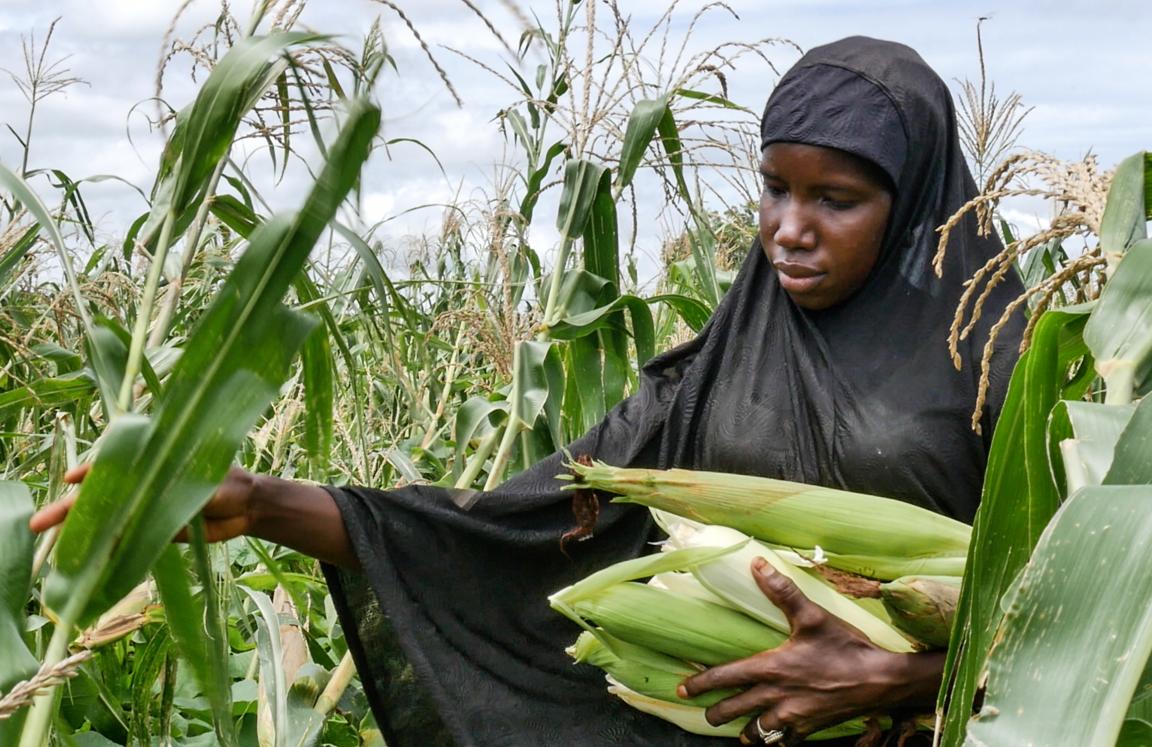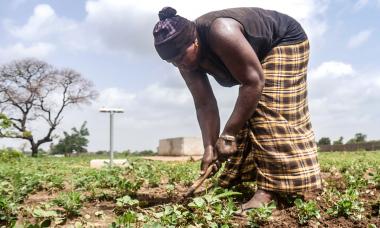
Climate change and food security
The adoption of Climate-Resilient Sustainable Agriculture (CRSA) increase production and productivity.
The Gambia’s economy is mainly agrarian based on three months erratic seasonal rain-fed subsistence agriculture. The decline in agricultural production and the impact of climate change, environmental degradation, and unsustainable farming practices have contributed to recurrent floods, droughts, bush fires, wind storms and pest & diseases outbreaks. These result in an increased in food insecurity which affects the lives and livelihoods of people living in poverty and disproportionately impact on women.
The adoption of Climate-Resilient Sustainable Agriculture (CRSA) in schools, communal and individual gardens, promotes application of organic manure through composting instead of the use of chemical fertilizers. As a result, production and productivity levels have improved for smallholder farmers including the women farmers.
